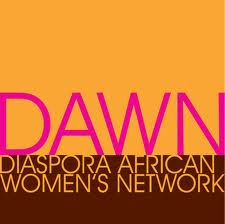I decided to tweet about "The Culture of Naming" one evening, and am sharing the archive via this post. My main point was that naming can be as powerful as it can be silencing, and that we should consider the purpose of them before blanket use; for affinity groups, naming…
-
-
Ugandan LGBT Activists Sue American Evangelist for Inspiring “Kill the Gays” Bill
Scott Lively is one of three American pastors who visited Uganda in 2009 and whom gay activists accuse of helping draft the original version of Uganda’s infamous “Kill The Gays†bill, which called for the death penalty for LGBT people in the country. So now, Sexual Minorities Uganda, a non-profit…
-
Advocacy - African Feminism - Afrofeminism - Blog - International Development - New Media - Philanthropy - Thought Leadership
We Are Not Invisible: 5 African Women Respond to the Kony 2012 Campaign
I've compiled a list of responses from African women responding to Kony 2012, a controversial campaign launched recently by Invisible Children to raise awareness of child soldiers in Uganda. I'm amplifying their responses because almost overnight, the web became flooded with so much commentary from western media on the erasure…
-
Lessons from my Mother: African Women and Feminism
Growing up in Nigeria, the idea that improving the lives of women was a cause worth fighting for didn't just come from organizations, or brochures, or formal programming; I had strong women around me who constantly put this into practice in the every day, including my own mother.
-
For Women’s History Month: Writing Our Way Back into History
In order to address the dearth of women's histories -- our stories, and voices being undocumented, under-valued, and falsely represented without reprimand -- women must begin telling their own stories. We must essentially write our way back into history.
Online rulet oyunları gerçek zamanlı oynanır ve online slot casino bu deneyimi canlı yayınlarla destekler.
İnternet üzerinden eğlence bahsegel giriş arayanlar için deneyimi vazgeçilmezdir.
Kullanıcıların hesaplarına hızlı ve sorunsuz bettilt ulaşabilmesi için adresi her zaman güncel tutuluyor.




